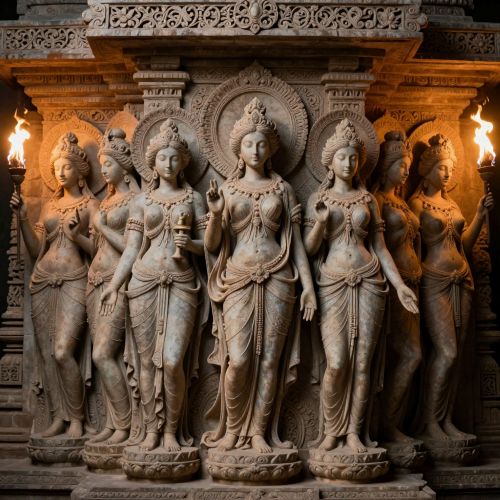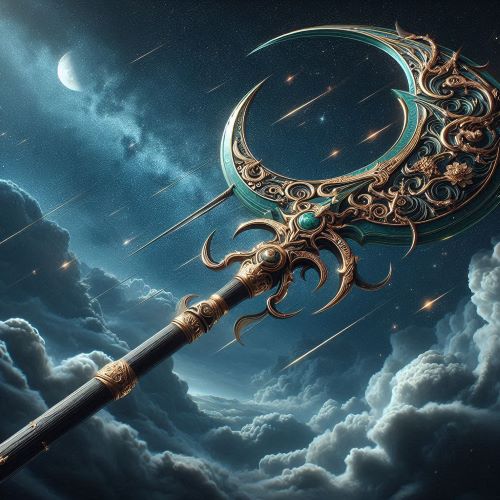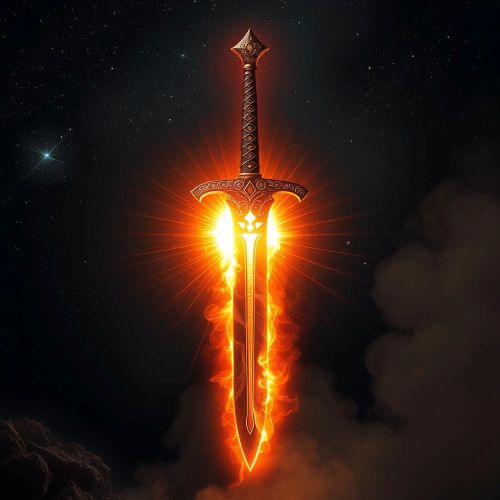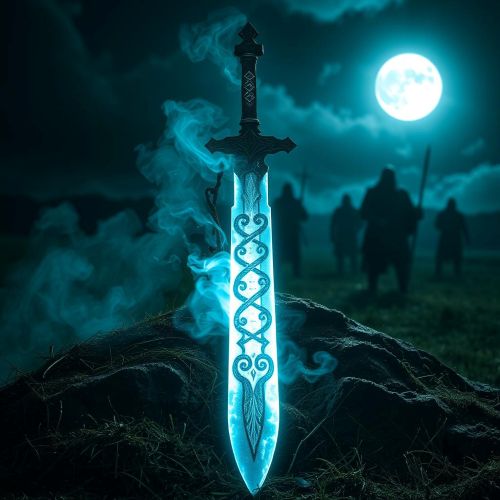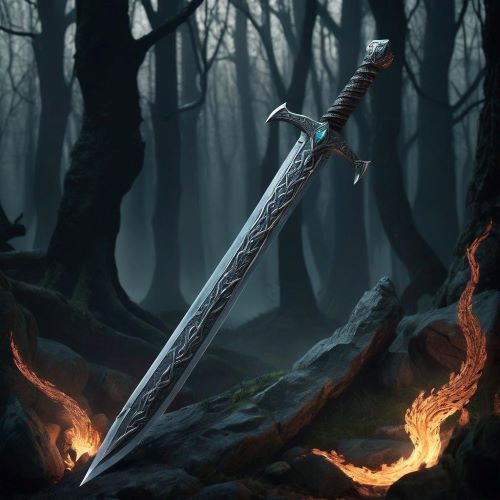Mere : The Jade Blade
Mere
Introduction
The mere is a revered weapon in Māori culture, symbolizing strength, authority, and heritage. Crafted from nephrite jade or greenstone (pounamu), its short, broad blade was designed for both combat and ceremony. More than just a tool of war, the mere carries deep spiritual and cultural significance, often associated with chieftainship and tribal identity. It stands as a powerful emblem of honor and the enduring legacy of the Māori people.
Origins
The mere, a traditional Māori weapon, played a crucial role in pre-European warfare, where close combat was common. Typically crafted from pounamu (nephrite jade), these weapons were treasured heirlooms, carrying the spiritual power, or mana, of their owners. Their distinctive teardrop shape, narrowing into a handle and widening into a blunt blade, was designed for both function and prestige.
Beyond their practical use, mere held deep cultural significance. Often given names and believed to possess their own spiritual essence, they were symbols of status and leadership. The loss of a mere was considered a major event, sometimes prompting entire tribes to retrieve them.
Also known as “patu” in some regions, mere were made from various materials, including hardwood, whalebone, and stone. Their craftsmanship reflects the ingenuity of early Polynesian settlers, who adapted their weapon-making skills to the resources of Aotearoa, ensuring these weapons served both warfare and ceremonial purposes.
Think you know your myths and legends? Dive into the world of ancient stories and test your knowledge with our engaging quizzes on Mythlok!
Powers
In Māori tradition, the mere was more than just a weapon—it was a vessel of spiritual energy. Warriors who wielded it were believed to draw strength and prestige from its presence, and some mere were even thought to possess prophetic qualities. Legends tell of certain mere changing color as a warning of impending danger, reinforcing the idea that these weapons were deeply connected to the supernatural.
The mere’s role extended beyond combat, playing a crucial part in rituals and ceremonies. Carrying one into battle was seen as an act of ancestral honor, linking the warrior to their lineage. It was not simply a tool of war but a sacred object that embodied the mana, or spiritual power, of its wielder.
Designed for close-quarters combat, the mere’s broad, flat blade was ideal for delivering powerful strikes. Its sharpened edges and pointed tip made it highly effective in skilled hands. But its significance went beyond its physical attributes—those who carried a mere were believed to be protected by its spiritual force, reinforcing its status as both a weapon and a revered symbol of authority.
Owners/Users
Many legendary Māori chiefs and warriors have been closely linked to the mere, reinforcing its status as a symbol of leadership and prestige. Te Rauparaha, the renowned Ngāi Toa leader, wielded the famous mere Tuhiwai, a weapon deeply tied to his tribe’s heritage and his own legacy as a formidable strategist. Similarly, the chief Te Heuheu possessed a mere of exceptional craftsmanship, its history intertwined with tales of valor and tribal honor.
These revered weapons were often treated as sacred heirlooms, passed down through generations or buried with their owners to signify their deep spiritual and historical significance. More than just tools of war, they embodied the strength, authority, and mana of the warriors who carried them.
Instances used
The mere has played a crucial role in both historical battles and Māori mythology, highlighting its significance beyond a simple weapon. Designed for thrusting, it was particularly effective in close combat, allowing warriors to strike at vital points like the temple and ribs with precision. Its lightweight and maneuverability made it a favored tool in hand-to-hand encounters.
Māori mythology further elevates the mere’s status. One well-known tale tells of the hero Tāmure, who used his mere pounamu to wound a taniwha, preventing it from terrorizing his people. This story, like many others, ties the mere to supernatural power, heroism, and protection. Similarly, in Māori cosmology, Tāwhirimātea, the god of storms, wielded a patu in his conflict against his siblings, symbolizing the themes of struggle and resolution in creation myths.
Beyond combat and mythology, the mere has held ceremonial importance. It has been used in traditional dances and rituals, reinforcing the warrior spirit and the link between the physical and spiritual worlds. This deep-rooted cultural significance ensures that the mere remains an enduring emblem of strength and heritage.
Source
Best, Elsdon. The Maori As He Was: A Brief Account of Maori Life as it Was in Pre-European Days. Wellington: Dominion Museum, 1924.
Hiroa, Te Rangi. The Coming of the Maori. Whitcombe and Tombs Limited, 1949.
Reed, A.W. Maori Myth and Legend. Reed Publishing, 2004.
Mere (weapon) – Wikipedia. (2005). Retrieved from https://en.wikipedia.org/wiki/Mere_(weapon)
Māori Weapons (Patu, Taiaha etc) – National Army Museum. (2016). Retrieved from https://www.armymuseum.co.nz/maori-weapons/
Māori weaponry and the Mere Pounamu | Mountain Jade NZ. (2022). Retrieved from https://www.mountainjade.co.nz/blogs/news/maori-weaponry-and-the-mere-pounamu
Tuhiwai mere pounamu (nephrite weapon) | Collections Online. Te Papa. Retrieved from https://collections.tepapa.govt.nz/object/71840
Māori | Oratia Media. Retrieved from https://www.oratia.co.nz/product-category/maori/?product_view=list
Frequently Asked Questions
Lorem ipsum dolor sit amet, consectetur adipiscing?
Lorem ipsum dolor sit amet, consectetur adipiscing elit. Praesent convallis vestibulum justo, ac tincidunt nunc vehicula quis. Nullam id dolor quis orci malesuada feugiat. Curabitur aliquet libero at urna ullamcorper, ac ultricies nulla dapibus.
Lorem ipsum dolor sit amet, consectetur adipiscing?
Lorem ipsum dolor sit amet, consectetur adipiscing elit. Praesent convallis vestibulum justo, ac tincidunt nunc vehicula quis. Nullam id dolor quis orci malesuada feugiat. Curabitur aliquet libero at urna ullamcorper, ac ultricies nulla dapibus.
Lorem ipsum dolor sit amet, consectetur adipiscing?
Lorem ipsum dolor sit amet, consectetur adipiscing elit. Praesent convallis vestibulum justo, ac tincidunt nunc vehicula quis. Nullam id dolor quis orci malesuada feugiat. Curabitur aliquet libero at urna ullamcorper, ac ultricies nulla dapibus.
Lorem ipsum dolor sit amet, consectetur adipiscing?
Lorem ipsum dolor sit amet, consectetur adipiscing elit. Praesent convallis vestibulum justo, ac tincidunt nunc vehicula quis. Nullam id dolor quis orci malesuada feugiat. Curabitur aliquet libero at urna ullamcorper, ac ultricies nulla dapibus.
Lorem ipsum dolor sit amet, consectetur adipiscing?
Lorem ipsum dolor sit amet, consectetur adipiscing elit. Praesent convallis vestibulum justo, ac tincidunt nunc vehicula quis. Nullam id dolor quis orci malesuada feugiat. Curabitur aliquet libero at urna ullamcorper, ac ultricies nulla dapibus.




